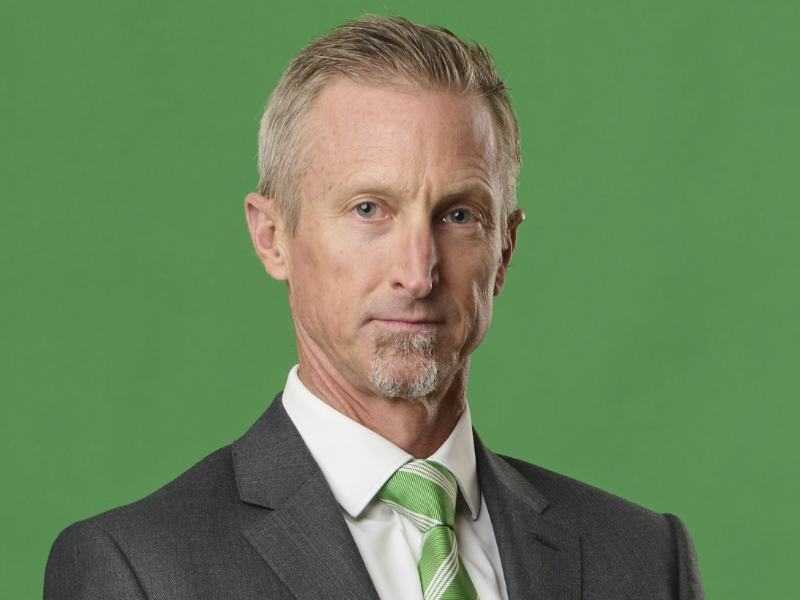
4 minute read
Sustainability At The Core
How Nedbank Leads The Green Finance Revolution
By Mike Davis, CFO, Nedbank
As the world reflects on the outcomes of COP29, the urgency to act on climate change and biodiversity conservation has reached critical levels. Despite some progress, it’s clear we’re not moving fast enough. The time has come for everyone, from governments to businesses to individuals, to step up. Finance isn’t just about profits - it’s about creating value that benefits society and the planet. Banks, governments, and companies are shifting their focus from traditional financial goals to making meaningful contributions to sustainability. For countries like South Africa, this shift is crucial. Although we aren’t the biggest polluters globally, we face some of the worst consequences of climate change - floods, droughts and extreme weather that destroy homes, livelihoods, and infrastructure. This imbalance highlights the need for bold and innovative solutions to address the causes and impacts of climate change.
Leading The Green Revolution
The concept of “going green” has moved from being a niche idea to becoming an ecological, economic and social imperative. Decades ago, environmental awareness might have been symbolised by small initiatives or partnerships with conservation organisations. Today, it’s about embedding sustainability into every aspect of how businesses and governments operate. Policies supporting renewable energy, water security and biodiversity are no longer optional. They are essential to protect our environment and build a sustainable future.
Financing A Better Future
Money plays a key role in tackling climate change. It’s needed to fund renewable energy projects, water infrastructure, education, and small businesses, all of which are essential for sustainable development. By 2025, global financial institutions are pushing to ensure a significant portion of their investments go toward sustainable projects while reducing their support for industries that heavily pollute, like coal and oil. This shift is not just good for the planet, it is also good for the economy. Renewable energy and green projects create jobs, stimulate innovation and pave the way for long-term growth.
Encouraging Polluting Industries to Change
High-emission industries, like coal and gas, are some of the biggest contributors to climate change. Reducing their environmental impact is critical. Financial institutions are starting to influence these industries by offering more incentives for sustainable practices and cutting funding for harmful activities. This approach sends a clear message: the future belongs to businesses that embrace green innovation. Those that cling to outdated, polluting methods risk being left behind.
Working Together For Real Change
Tackling climate change and biodiversity loss isn’t something any single group can do alone. Governments need to create policies that encourage sustainability, while businesses and financial institutions provide the funding and expertise to make it happen. In South Africa, progress has been made in renewable energy through partnerships between the government and the private sector. This same approach can and must be applied to other critical areas, like water infrastructure. With the right collaboration, we can ensure communities have access to essential resources while protecting the environment.
Empowering Small Businesses and Communities
Small businesses are the backbone of any economy. They drive growth, create jobs, and bring innovation to life. Supporting these businesses, particularly through sustainable finance initiatives, is key to addressing challenges like unemployment and inequality.
By providing sustainable funding for renewable energy, water projects, education, and affordable housing, the financial services sector can make a direct impact on the lives of everyday people. These initiatives help build stronger communities while addressing critical environmental issues.
Preparing For The Future
The transition to a sustainable world requires more than just funding, it requires knowledge and skills. Education and training are essential to help individuals and businesses adapt to a rapidly changing landscape.
Challenges And Opportunities Ahead
While the road to sustainability isn’t easy, the potential benefits are immense. From fixing our ports and transport networks to addressing water shortages and improving regional stability, there’s a lot of work to do. But with the right focus and determination, these challenges can become opportunities for growth and innovation.
As we look ahead, we have every reason to be cautiously optimistic. By continuing to prioritise sustainability and collaboration, we can build a future that benefits people, businesses and the planet.
COP29 was a critical moment which represents a chance for global leaders to stop talking and start acting. We need bold commitments, innovative solutions, and immediate action. From financing green projects to supporting small businesses, every decision counts.
It’s up to all of us, to take responsibility and push for change. Together, we can build a world that’s not only sustainable but thriving, leaving a legacy we can be proud of for generations to come. The choices we make today will shape the world we leave for future generations.
Davis is the Chief Financial Officer of Nedbank Group










